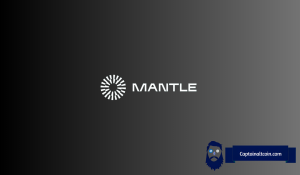Paul Atkins, SEC Chair, Highlights Crypto as Key Focus at SEC-CFTC Roundtable
SEC Chair Paul Atkins prioritizes crypto regulation, emphasizing harmonized rules to strengthen U.S. finance at the SEC-CFTC Roundtable.
U.S. Securities and Exchange Commission (SEC) Chair Paul Atkins has emphasized that crypto regulation is now the SEC’s top priority.
Speaking during a media session, Atkins highlighted that the U.S. is at a critical point in addressing digital asset regulation. This shift comes as lawmakers and investors demand clarity on how the SEC will approach the emerging sector.
SEC Focuses on Streamlined Crypto Regulation
Atkins made his remarks at the SEC-CFTC Joint Roundtable on Harmonization, a pivotal event for U.S. financial markets. He stressed that decades of fragmented oversight had led to confusion and driven entrepreneurs offshore.
According to Atkins, this era of regulatory disarray is coming to an end as both the SEC and CFTC aim to provide clearer, unified oversight.
He noted that the SEC’s move toward policy development, rather than solely enforcement, is a key part of this shift.
Atkins specifically pointed to the SEC’s new innovation exemption rules, which aim to ease the launch of crypto products. These rules mark a clear departure from the enforcement-heavy approach that had dominated previous SEC actions.
By shifting toward policy development, the SEC hopes to foster innovation without stifling the industry.
The U.S. Risks Falling Behind Without Unified Oversight
Atkins warned that if the U.S. fails to establish a unified crypto regulatory framework, the country could lose its global financial leadership.
He emphasized that other jurisdictions are quickly advancing in the space and that the U.S. needs to act to maintain its competitive edge. Without clear regulations, entrepreneurs and investors may look to countries with more favorable rules.
Both Atkins and Acting CFTC Chair Caroline Pham stressed the importance of collaboration between the SEC and CFTC. While they will not merge the agencies, they plan to harmonize their efforts to support markets and ensure fair competition.
Pham highlighted initiatives like Project Crypto and the CFTC Crypto Sprint as part of this broader effort.
Harmonization of Regulatory Efforts
Pham’s support for the SEC’s direction under Atkins reinforces the need for aligned efforts between the two agencies.
She explained that their goal is to reduce market costs and encourage responsible innovation. Harmonizing their regulatory frameworks will also improve market efficiency and investor access.
Atkins and Pham agreed that aligning their rules is essential to ensure that both investor protection and market fairness are maintained.
While the SEC and CFTC will maintain separate functions, their cooperation will help reduce duplication and create a more cohesive regulatory landscape. This collaboration is seen as crucial to modernizing U.S. financial markets.
The post Paul Atkins, SEC Chair, Highlights Crypto as Key Focus at SEC-CFTC Roundtable appeared first on Live Bitcoin News.
You May Also Like

Here’s Why Mantle (MNT) Price Is Pumping Today

Cashing In On University Patents Means Giving Up On Our Innovation Future
